反避税新规实施 海外“避税天堂”或将不复存在
中国日报网 2018-09-05 10:50

2018年9月起,中国按照共同申报准则首次与其他部分国家和地区交换海外金融账户信息。中国税务机关将掌握个人境外收入,一旦被列为高风险的纳税人,在面临巨额资金来源不明审查的同时,还得补缴大额的个人所得税。
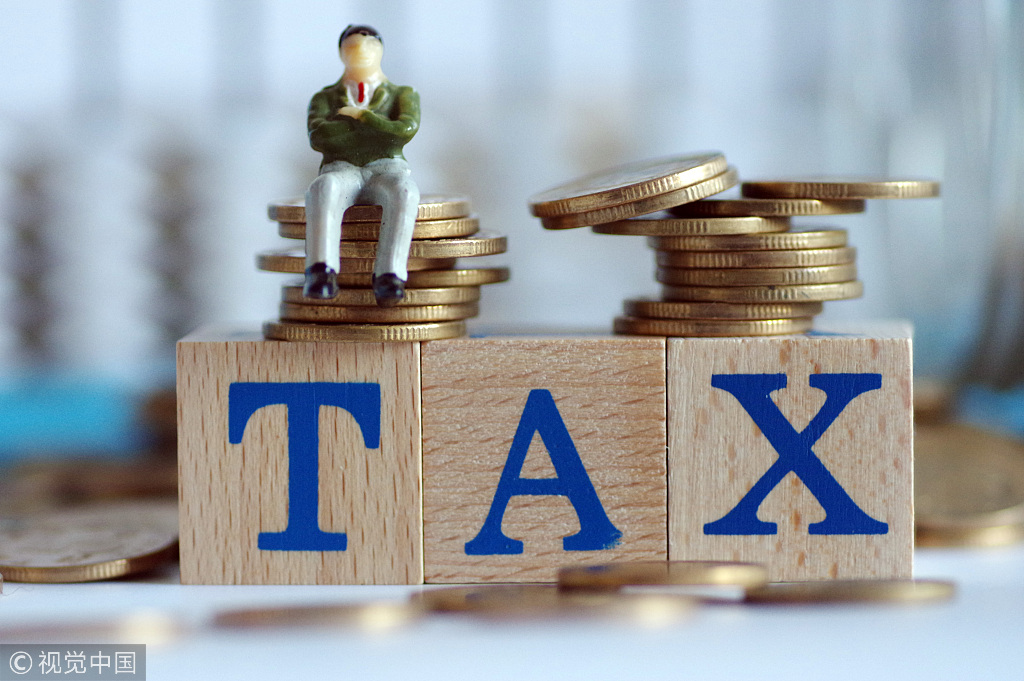
Starting on Sept 1, the State Administration of Taxation began gathering and exchanging financial intelligence about individual overseas incomes with other countries and regions under the Common Reporting Standard (CRS) initiative of the Organization for Economic Co-operation and Development (OECD).
9月1日起,国家税务总局开始按照经济合作与发展组织制定的共同申报准则从其他国家和地区收集或与其交换个人海外收入金融信息。
所谓的“共同申报准则”(Common Reporting Standard,CRS),正式名称是《金融账户资讯主动交换标准》(Standard for Automatic Exchange of Financial Account Information),是由二十国集团提出,经济合作与发展组织理事会(OECD Council)于2014年7月15日批准通过的。该准则要求各签署国获取本国税收居民的金融账户信息(financial account information)并每年与其他签署国自动交换(automatically exchange that information with other jurisdictions on an annual basis)。
CRS规定信息交换的内容包括:帐户及帐户余额(account and account balance);相关账户的利息收入(interest income)、股息收入(dividend income)、保险产品收入(income from insurance products)、相关金融资产的交易所得(income from financial assets transactions);还包括帐户的一系列基本信息(basic information of the accounts):姓名、出生日期、国别等;以及年度付至或记入该账户的总额。
截至2017年6月30日,已有101个国家(地区)承诺实施“标准”,96个国家(地区)签署实施“标准”的多边主管当局协议(Multilateral Competent Authority Agreement)或者双边主管当局协议(Bilateral Competent Authority Agreement)。
我国在2014年9月的G20财政部长和央行行长会议上承诺将实施该标准,于2016年10月出台《非居民金融账户涉税信息尽职调查管理办法(征求意见稿)》,并在2017年1月1日开始实施。
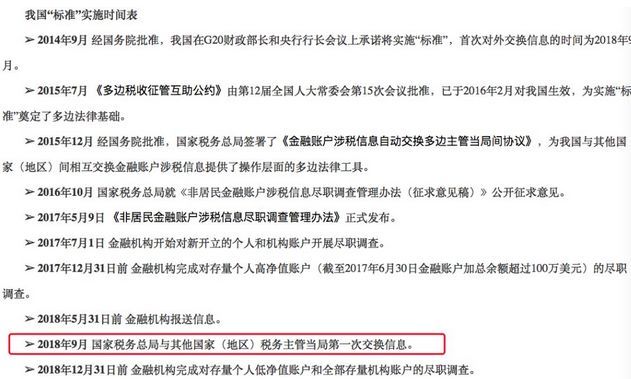
根据日程,从2017年1月1日开始我国将对新开立的个人和机构账户开展尽职调查(conduct due diligence procedures on newly-opened personal and institutional bank accounts);
2017年12月31日前,完成对存量个人高净值账户(high net-worth accounts)的尽职调查(due diligence procedures);
2018年9月,国家税务总局与其他国家(地区)税务主管当局第一次交换信息;
2018年12月31日前,金融机构完成对存量个人低净值账户(low net-worth accounts)和全部存量机构账户(institutional accounts)的尽职调查。
截至2018年8月7日,已有103个国家(地区)签署了《金融账户涉税信息自动交换多边主管当局间协议》。按照此前计划,中国内地、中国香港和中国澳门都在今年9月同其他CRS参与国完成第一次信息交换。
国家税务总局官网给出的信息互换过程如下:
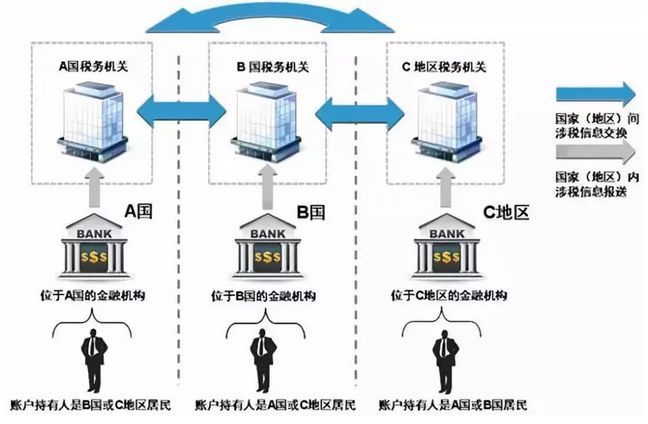
将于明年1月1日实施的新个人所得税法增加了反避税条款,针对个人不按独立交易原则转让财产(transfer property in violation of independent trading)、在境外避税地避税(evade taxes through overseas tax havens)、实施不合理商业安排获取不当税收利益等避税行为,赋予税务机关按合理方法进行纳税调整的权力。
The new rules bolster China's General Anti-Avoidance Rule (GAAR) and its new personal income tax law, further empowering Chinese tax authorities to crack down on tax evasion.
新规进一步推进我国反避税条款以及新修订的个人所得税法的实施,助力税务部门打击避税行为。
(中国日报网英语点津 Helen)









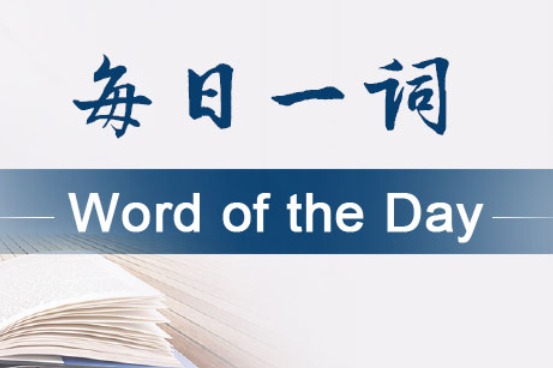
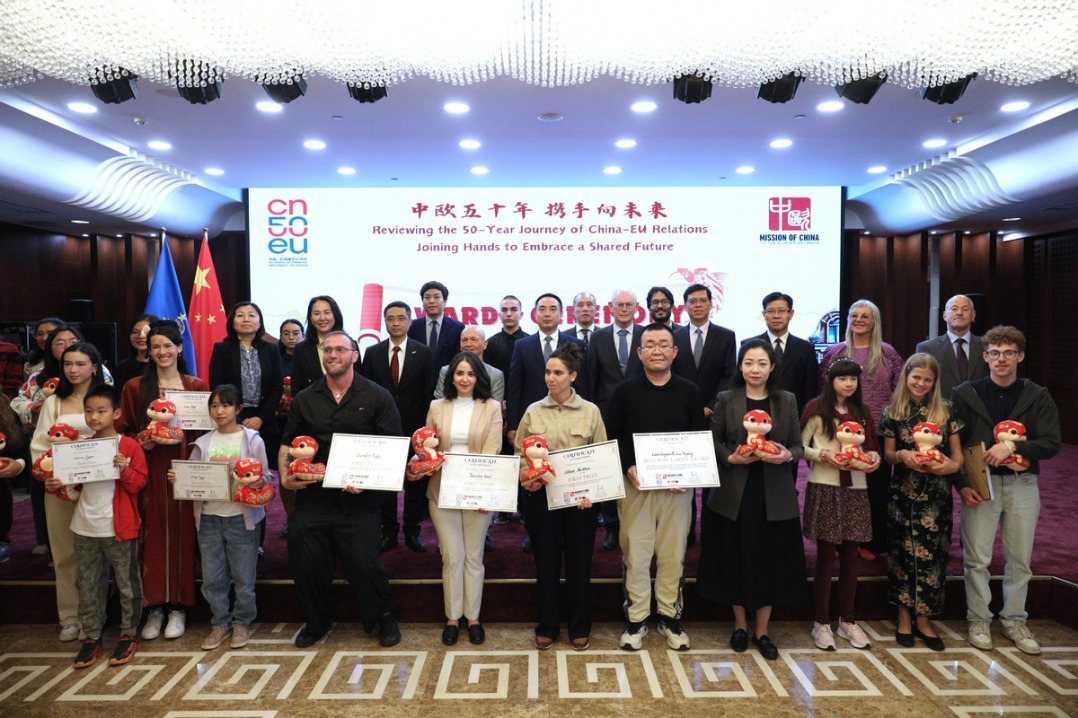
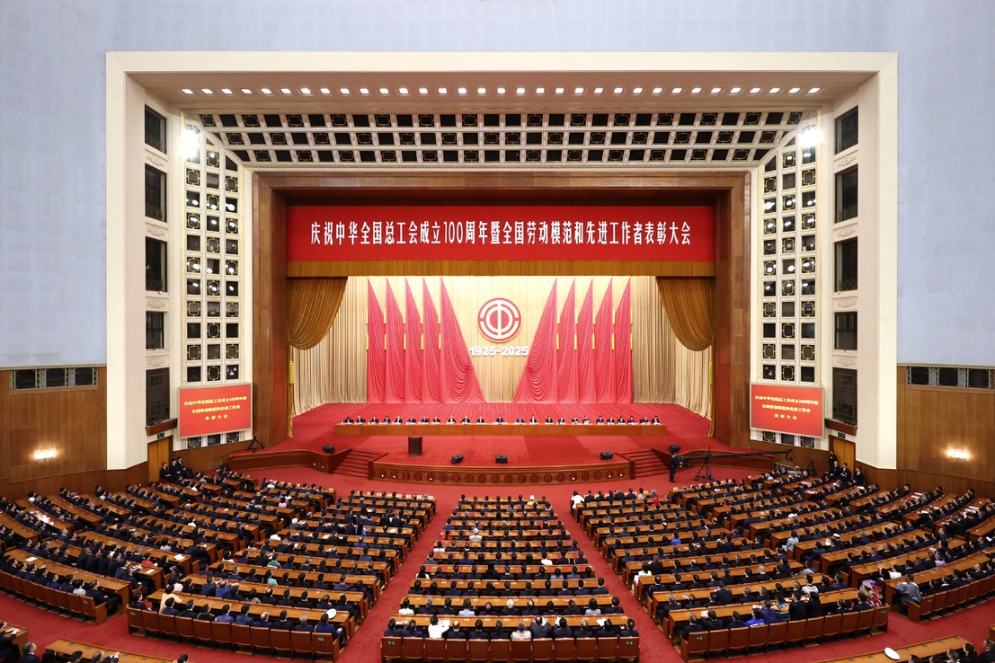





 英语点津微信
英语点津微信 双语小程序
双语小程序